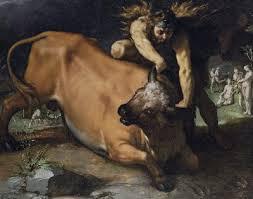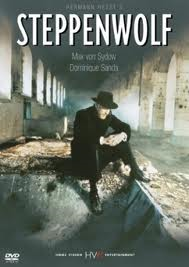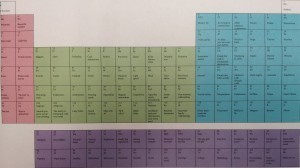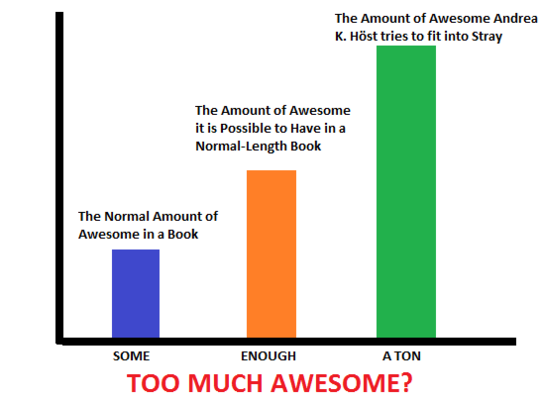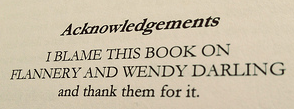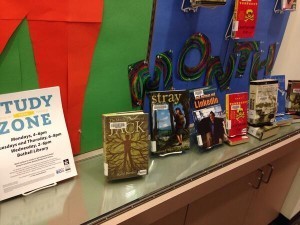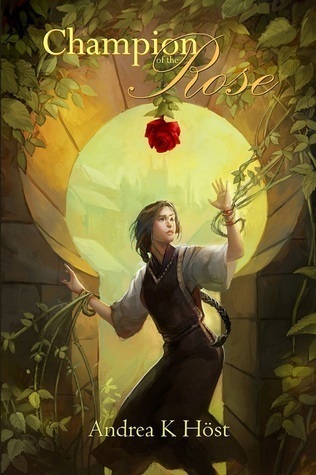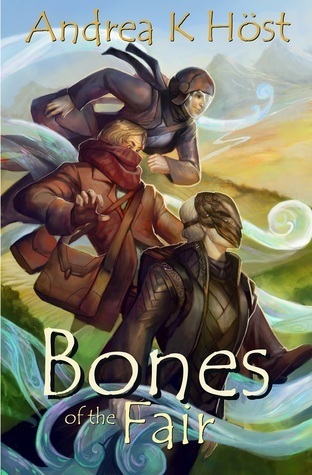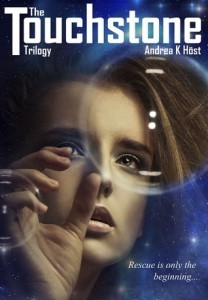Rachel Neumeier's Blog, page 376
March 22, 2014
The Book Smugglers: Touchstone Awesomeness
Hey, people, I can’t tell you how happy I am that Ana and Thea of The Book Smugglers agreed to write a guest post for Andrea K Höst Week! For lots of reasons. Not only are The Book Smugglers one of the premier book blogger sites active today, not only do the eponymous Book Smugglers have excellent taste (eg, similar to mine) and thus direct me waaaay too often toward books I love that I might have missed, not only was Ana’s review of And All the Stars (along with Heidi’s at Bunbury in the Stacks) that first got me to buy AKH titles, but also the Book Smugglers’ joint review of The City in the Lake was really important to me. I mean, my first book! A review like that! You can imagine.
So, I’m very glad to welcome Ana and Thea over for the day! Herewith their joint take on Touchstone Awesomeness.
* * *
First and foremost, thanks for having us over for this wonderful event! Like most people here, we are huge fans of Andrea K. Höst – although our introduction to her work has been somewhat staggered and scattered. Ana was the first one to read Höst’s work, reviewing her fantasy novel Champion of the Rose, followed by SFF dystopian novel And All the Stars, and then – DUN DUN DUN – Stray (the first book in the Touchstone trilogy).
Then, this past year while selecting books to read for our annual Smugglivus Feats of Strength, Ana dared Thea to *finally* try Höst’s work by reading Stray. And guess what? She loved it. The rest, as they say, is history. Shortly after Smugglivus concluded, we quickly decided that there was no reason for us to NOT read the rest of the Touchstone trilogy, which we accomplished in short order. And guess what else? With each further adventure of Cassandra’s we read (in Lab Rat One and Caszandra and The Gratuitous Epilogue), the more we fell head over heels in love with the series, and by extension Andrea K. Höst’s writing.
In case you don’t know about the Touchstone Trilogy yet, here’s the scoop:
Cassandra Devlin (Cass for short, never Cassie) leaves her final exams and somehow wanders through a rift in space to a place that she instinctively knows isn’t Earth. An abandoned alien world, Cass nearly dies of starvation and exposure until she’s scooped up by a humanoid group of elite soldiers, called the Setari. Cass is a “stray” – a wanderer between worlds – who cannot return home (it’s basically impossible without tearing huge apocalyptic holes in the fabric of the universe), and who is now a low-ranking citizen of Tare. Well, she’s low ranking and relatively unremarkable until it’s discovered that Cass possesses an unprecedented ability as a “touchstone.” That is, she can “charge” the telekinetic/psychic-gifted Setari (who are basically a police force that safeguards the universe from the threat of psychic ghost creatures), by enhancing their supernatural abilities. And… well, that’s just the tip of the psychic iceberg. There are abandoned planets uncovered, creepy clever spidery monsters, medical tests upon medical tests, copious amounts of danger, and an impressive dose of friendship and romance to boot.
In other words: We Love This Series. And here are the reasons why.
Reasons Why We Love The Touchstone Trilogy:
1. It’s one of the best epistolary novels you’ll ever read because it makes sense within the framework of the world, and because heroine Cassandra is made of awesome. Cass’ journal is a daily log of her activities and experiences in this new world. It works very well because it is both an “after-the-fact” focused account and an extremely personal recounting of all sorts of things from the mundane to the life-altering. In simple words, the narrative is Cassandra’s as she relays events and facts and muses about them. Those musings are often passionate, many times self-deprecating and always, always interesting. Plus, the reason why the epistolary format works in a believable manner directly connects with the worldbuilding: every person on this planet is connected to the network via a nanotech brain implant that records, connects, transmits, even translates anything and everything. Because Cass can literally replay her day, log her memories, and recall them, it makes perfect sense that her diary is so detailed. This does not mean that her entries are completely reliable: there is the question of WHAT she chooses to relay and how. Many times, Cass understates life-threatening situations in ways that make them sounds like trips to the grocery shop when they are anything but.
2. Amazing Worldbuilding. Multi-dimensions, multiple planets, different strands of humanity, aliens, psychic abilities from minor telekinesis to the ability to shape reality, the importance of history to explain the present are all threads that are interwoven in this story. We’d say that the Touchstone trilogy is a bona fide Scifi Party. At its core though, the trilogy is a tale of survival: both personal, when it comes to Cass, and collective, when it comes to the Tarens and how they must strive to survive against enemies they don’t entirely understand.
3. It Raises Provocative Questions. About issues like privacy (or the lack of it), access and environmentalism (amongst many others). Primarily, there’s the question of privacy. Because Cass is such an important asset for the Tarens and the Setari, she is constantly monitored and her freedom to come and go, limited. She is often taken for tests, undergoes training to understand the extent of her powers and thus, it’s no wonder she feels like a lab rat for most of the story. Because everything that she does and says is a matter of public interest and public safety, her life in Taren is one of constant struggle for privacy (one of the reasons why her diary, written in English, is essential for Cass to maintain her sanity). Cass isn’t the only one who grapples with the interconnected nature of the Network and utter lack of privacy – the Setari are equally hounded by regular people and constantly monitored by their superiors. Television shows are made about their lives, and gossip speculation runs rampant.
Access is an important thought here too, because Tarens have such exceptional technology – but are reluctant to share it with other human groupings of people in Tare’s local system. This is a pressure point for other cultures, especially when the (re)colonization of Muina begins. And, on the recolonization note, something Cass reflects upon frequently once Muina is being reclaimed by humanity is the Taren’s disregard for the outside world, natural wildlife and native ecosystems. It’s not a huge point in the book, but it’s a thought provoking one about the consequences of human civilization.
4. The Awesome Friendships and Secondary Characters. Cass is a bit of an outsider when she first arrives on Tare – being that she’s from a planet no one has ever heard of before and has an unprecedented psychokinetic gift – and she resents the never-ending training she’s subjected to with the Setari. That said, she quickly makes friends because she’s such a gregarious, genuinely open, and incredibly observant person. We LOVE the friendships she forms with other female characters (Tauriel and Zan in particular), just as we love the totally platonic relationships she has with male characters (especially Maze). There’s a heartwarming sense of camaraderie in this series – as there should be, given that these squads of people need to rely on each other to survive and do their jobs – and it’s so refreshing to read about these genuine, functional relationships.
5. The Romance. Because it’s a long slow burn, it evolves in a way that makes sense, and it’s SO GOOD, GUYS. We shall say no more: following Cass’ romantic journey as it happens is a huge part of why this trilogy is so, so delicious.
So that is it in a nutshell! We hope you’ll share our love for Andrea K Höst’s Touchstone trilogy – please gush away and share your own reasons for loving this phenomenal series!
* * *
Thank you, Thea and Ana! AND, YES, the in-depth and thoughtful exploration of privacy issues is unique in my experience, and Höst’s handling of this issue is indeed Made of Awesome. To me, that was not the single most enjoyable aspect of this story (that was Cassandra’s voice and the romance), but it was the most intellectually impressive aspect. Not to mention increasingly relevant to today’s society.
How about you all?
a) most impressive intellectual aspect of The Touchstone Trilogy (I think there are actually multiple candidates for this part of the Awesome)
b) your personally favorite aspect of The Touchstone Trilogy? Cass herself, the romance, the secondary characters, the worldbuilding, the technology, what? So much Awesome, so hard to choose.

March 21, 2014
Andrea K Höst and the Heroic Tradition
So, the other half of my post, this time with a quite different emphasis, as you see. These posts going up for AKH Week contain quite a few references to AKH’s female protagonists, which, yes. But it was definitely Aristide Couerveur who captured my eye and attention and heart most strongly in the Darest duology. So I wound up focusing in this post more on the male lead characters, and that turned into thoughts on the heroic tradition in fantasy and AKH’s interpretation of that tradition. Thus this post.
So, Aristide Couerveur, from Champion of the Rose and (more) from Bones of the Fair.
Aristide Couerveur has got it all: moral resolution, commitment to duty, competence, intelligence, self-possession, emotional discipline, generosity of spirit. This is the kind of male lead I most appreciate. I appreciate all these qualities in a female lead, too, don’t get me wrong. But I think this is more of a paradigm for male heroes, reaching straight back to very old fashioned ideas of heroism. I mean, think of Shane. Except that the hero of the classic Western isn’t a part of society; he comes in from the outside, remains outside normal society throughout the story, and at the end, leaves again. That’s not generally the case for Andrea Höst’s heroes, who instead (usually) get to share in the happy ending.
It’s not like I was a lit major, people. Biology all the way. So I’m not going to pretend to be any kind of expert on literary conceptions of heroes or anything. But: I think we all pretty much understand what is meant by the “classic” hero versus the “modern” hero. Right?
Like, the classic hero is courageous and noble, selfless and kind to the weak (in sometimes rather a condescending way), physically strong and capable of remarkable physical feats. He defeats external threats that could never be overcome by a normal person. Unlike the tragic hero, whose fatal flaw leads to ultimate failure and tragedy and whose story serves as a lesson for the ages, if the classic hero has a weakness, he overcomes it. You can expect the classic hero to succeed against terrible odds, snatch victory from the jaws of defeat, and leave the world a better place when he’s done.
The thing is, if not handled just right, a classic hero may seem a little much of a muchness to a modern reader. I’m thinking here of Chevenga in Lion’s Heart and Lion’s Soul by Karen Wehrstein I actually enjoyed these books quite a bit, but then I have a high tolerance for over-the-top perfection. And even for me, Chevenga was a little extreme. I haven’t re-read those books in years, and the over-the-top perfection of the hero is probably why.
But the antithesis of the classic hero is way, way worse. I mean the modern literary hero, or antihero: the man whose attention is almost entirely inward, whose battles would all be internal except he is too consumed by ennui to bother fighting any kind of battle, who is disconnected from any sense of conventional morality because he is contemptuous of convention and morality and, therefore, of nearly everyone. I mean, the kind of brooding, moody, depressive “hero” who thinks himself an iconoclast because he glorifies his own dissatisfaction, who finds no meaning in life and scorns those who do, and who admires only a handful of other profound souls who are likewise elevated above the common herd by their amazingly sensitive sensitivity.
Thank heaven you don’t find many modern antiheroes in adventure SF or high fantasy, because ugh. Other kinds of antiheroes in grimdark, of course; actually antiheros who are just villains, and ugh again.
In contrast, Andrea Höst’s heroes are exactly what I most prefer. They’re like classic heroes, only with more of an internal dimension and more connected to real life. They’re heroes, but their heroism is the kind anyone can aspire to. It doesn’t take being the son of a god or whatever. It takes moral resolution, commitment to duty, competence, intelligence, self-possession, emotional discipline, and generosity of spirit. And when they’re done, the world is a better place. I think that about sums it up.
Höst uses variations on that theme all the time, with emphasis on extreme self-possession – actually, her protagonists would test on the extreme end for all those traits. Not just Aristide Couerveur. Look at Keir Ieskar and Illukar las Cor-Ibis from the Medair duology, Koaren Ruuel from The Touchstone Trilogy, even Fisher, more or less, from And All the Stars. This is one of the reasons I love her stories.
Matching guys like this up with women who are worthy of them is quite a trick. Höst pulls that off, too. She has to, because a male hero like this works best not as the protagonist, but as a foil to the actual pov protagonist.
In The Bones of the Fair, Gentian Calder is a great protagonist. She herself is all about moral resolution and generosity of spirit. And endurance. Everything about her curse is *actually worse* than it first appears, and yet here she is. It’s the same with Medair in the Medair Duology, with Cassandra in the Touchstone Trilogy, with Madeleine in And All the Stars. In every case, the reader is invited into the story via the pov of the female lead, who is strong and complex, but more approachable, more someone the reader can relate to, than the male lead. Which, not coincidentally, also allows the author to leave the male lead’s thoughts and motivations opaque to the reader, allowing her to develop some kinds of tension that would otherwise be lost. We get the same kind of technique in Dorothy Dunnett’s Lymond series, for example; and in fact Lymond shares that whole raft of characteristics with Höst’s male leads. So does Shevraeth in Crown Duel / Court Duel. So does Ben Hammond in An Alien Music. It’s not a coincidence that these are all heroes who particularly appeal to me, or that none of them are the pov protagonist for their respective stories.
So, yeah. This actually is something that goes right past the actual writing and narrative structure – though those qualities matter, too – and straight into specific ideas of heroism which serve as a foundation for storytelling, tropes that are either going to appeal to readers, or else not. For me, the voice of each of Höst’s female protagonists matters a great deal. All of her protagonists pull me into the story, all of them are relatable – especially the contemporary voice of Cassandra in The Touchstone Trilogy. But I think that one important quality that lifts Höst’s stories above so many others is this particular concept of what makes a great hero.

March 20, 2014
The New Improved Periodic Table of Awesomeness
Probably everybody but me has already seen the Periodic Table of Awesoments, which is pretty neat. But, to me, this effort, what snazzy, has too many Doritos (for example) and not enough pure awesomeness. Plus, its author did not use the “family” concept enough to satisfy me, because we all know all the elements in a family ought to have important properties in common, right?
So, hereweith, my own personal New Improved Periodic Table of Pure Awesomeness.
I don’t know that it’s terribly, uh, periodic. And my families of elements are still a little odd from time to time, I guess. But it suits my personal taste to lose the Doritos and add Griffins. I kept Batman, though, because, as I am sure you will agree, Batman is indeed Awesome.
Those of you who are following along this week may realize that this particular table is slanted a bit not just toward my personal taste but, in keeping with the week’s theme, toward Touchstone Awesomeness. By my count, the Touchstone Trilogy includes an even 50 of these Awesomeness Elements, which is probably a higher score any other work of fiction EVER.
Anyway, here you go, see what you think. I will say, “new and improved” does not refer to the formatting, which required WordPress-fu that turned out to be beyond my severely limited powers. Anybody know of a fillable Periodic Table that would be fillable and then pasteable and prettier? I could tell you how I got this to turn into a postable picture, but it was such a kludged process, you probably wouldn’t believe me.
But! I believe if you click on it, you should get a blown-up copy you can actually read.
Anyway, enjoy! And thanks to Flannery, who gave me the idea for Touchstone Awesomeness graphs, and to Craig, who pointed me to the Periodic Table of Awesoments. The two of you made me waste a WHOLE EVENING on this, when I ought to have been finishing a short story featuring Thaddeus as the pov character. I’m off to see about that now!

Touchstone Awesomeness
Wow, I’m glad I set Flannery’s post up in draft form last night, because quite a morning! Rush rush rush, I tell you, and I do get up really early, so that is not usually how my mornings go. But! All is well, because here we are, only a few hours later than I intended.
Now, Flannery posts over at The Readventurer, and I’m glad to see that it looks like she’s going to start posting more regularly again. Plus, obviously, a guest post right here! Flannery is one of the original AKH fans PLUS you will notice she gets credited for AND ALL THE STARS, which I loved, so good job with that!
So, welcome, Flannery! And I hope you’ll all enjoy reading her post as much as I did.
* * *
When Rachel Neumeier asked if I would write a blog post about Andrea K. Höst for a dedicated week to the author, I quickly replied that I would. I am, after all, a gigantic fan of Andrea and her work. The problem with my snap decision is that I haven’t been participating much online lately, nor have I been writing (m)any blog posts or reviews. My fingers feel a bit rusty on the keys. However, if anything can divert me from watching John Mulaney’s New In Town on Netflix for the tenth time, it’s writing an entire post about what a badass I think Andrea is. Although she’d probably prefer not to fill this particular position, Höst is the self-published author against whom I compare all other self-published authors. She is absolute proof to me that an author can conceive of fantastic stories and characters, execute beautiful writing, edit, edit, edit, and deliver fully-formed books without the interference of a third-party publisher. Of course, I am not deluded enough to think there are no third-party interveners from when she writes the first draft until she puts it up online, but she is the end-all in terms of all aspects of the books.
You know all those posts out there in the web that weigh in on the pluses and minuses of self-publishing? You know the ones I’m talking about, they often (but thankfully not always) say something like “people who self publish are the ones who can’t get their books published any other way, blah blah blah.” Well, Neumeier gave me free rein to talk about Andrea in a blog post, so here is my overall thesis: I sincerely hope Höst never goes the traditional publishing route. If she did, I have a terrible fear that her books would become something other than what they are. They are exactly what she wants them to be, and that’s the way I love them. In a creepy “the future is now” type of way, I can technologically track my interest in her writing back to its onset. The first of her books I read was Stray, book one of the Touchstone trilogy, which I read with another blogger friend from Goodreads. The review that got me interested was this one, which was written by an Argentinean Goodreads friend of mine. I enjoy/ed giving him a hard time about his penchant for buying only the cheapest ebooks available, but his random find and subsequent praise-filled review were enough to snag me. I realized at that point that I had purchased Stray from Amazon during one of its many freebie periods and it was lingering like hundreds of other books I’ve collected on my Kindle since 2009. My readalong buddy and I kept a Google doc of notes that I just went back and read—all 30 pages of them. It is 100% true that I was into it from the beginning and that continued throughout. Cass Devlin is smart, resourceful, funny, and logical, which is a surprisingly hard to find combo. When she is thrown into a completely unknown situation with mostly just her wits, she tries to figure out how time passes, how to get food, make shelter, how to deal with her period, how to protect herself. She is just so darned practical, and I loved her for it. After reading through my notes, and reading the review I ended up writing, I think the original bar chart I made for my review is true for Höst’s work overall:
At the time I originally wrote my review, I thought that Stray needed to be edited down a bit because there was just so much going on. After reading two more of her books, I think the amount of ideas that must be in Andrea’s head is insane. Some authors take years to develop worlds as complicated and intricate as the ones she imagines up. There is a lot of description, but not in a Tolkeinesque let’s-describe-each-rock-the-gang-encounters type of way, more in an I’m-excited-about-what-I’m-writing-and-can-visualize-every-inch-of-this-world kind of way. Not description of random pieces of nature, but instead description of underlying systems and worldbuilding, which doesn’t always work for me as a reader but totally works for me in terms of Andrea’s writing. In a total reverse from what usually happens, I think I enjoy her books even more as time passes.
Though I have so much respect for Andrea as a writer, I think my positive feelings arise equally from the way she presents herself online. She blogs about her writing, tweets about her interests, and participates often as a reader. (something I know Neumeier also does well) She wrote a two-part primer on Agatha Christie and similar mystery authors for my blog that still gets lots of traffic to this day. After my friend and I read Stray, we chatted off the record and on the record (well, on Goodreads) about how we would absolutely love it if Andrea wrote a survivalist story, and the craziest thing happened. Höst somehow took the wishes and dreams of some random people on the internet as inspiration and turned them into And All the Stars. In less than a year.
I’ll take that blame and wear it as a badge of honor, thank you. Though I have absolutely no data to back this up, it feels to me like she is slowly gaining the popularity that I think she deserves. Of course, this week of blog posts about her and her work is a lovely tribute, but I couldn’t wipe the smile off my face when I recently went into a branch of my library system (the busiest in the US), and saw Stray on the front display, just hanging out with some other recommendations and new acquisitions. And it wasn’t me who harassed them to buy it! (If anyone did at all. I have a suspicion it was brought on by favorable reviews and And All the Stars being shortlisted for the Cybils and nominated for the Aurealis Awards)
If you look at WorldCat for And All the Stars, it looks like there are eleven US libraries that have at least one copy in circulation. For a self-published author, I think that’s amazing. Of course, many libraries can’t afford to keep books on their shelves if they aren’t routinely checked out, but I periodically keep tabs on them when I am placing holds and there are usually one or two of her books checked out.
You might think, considering how much I admire Andrea’s work, that I’d read all of it. Well, I haven’t. I’ve only read four of her books. I guess I am practicing delayed gratification as I’m fairly sure I will love them all. Even if I don’t, I’m positive there will be an excessive number of awesome ideas jam-packed into them. Tiny bits of characters, worlds, and plotlines that will make me wish that all of her books were made into television shows. Since I know she’ll be reading this (rambling, mostly nonsensical) post, here are 10 things I’d love to read about in an AKH book:
1. A female fighter pilot (in space or on Earth or somewhere else!)
2. Some sort of convoluted prison breakout
3. A futuristic (probably female, definitely not asexual) Sherlock Holmesian character
4. The Australian outback as a setting.
5. Building a colony/city/town from scratch
6. Somehow working this place or this place into the plot
I lied. I could only think of 6 things off the top of my head.
Dear Andrea,
If you could go ahead and take one of those tidbits and change it completely into something amazing and yours, that would be great, m’kay?
Sincerely,
One of your biggest fans,
Flannery
* * *
Thanks, Flannery! And if I get to vote, I totally vote for a convoluted prison breakout. That is a trope that really works for me. Can we get everybody else on board and put some pressure on AKH for that one? Because I’m sure she doesn’t have anything like enough ideas to work on already, right?

March 19, 2014
Recent reading: Champion of the Rose and Bones of the Fair
I was going to put in another guest post today, but actually (clears throat) I only just finished *my* post for this week, making me the very last person to meet this particular deadline. And then my post proved to be too long. So I have revised it into two posts, of which this is the first.
So! A guest post again tomorrow. But here is the first of two from me, and if the week stretches out a trifle, fine.
For me, the first book of this duology was fine, but I preferred the second.
I enjoyed the set-up of the situation with the Champion, though – I mean, how would you like to be chosen as the King’s Champion almost literally because of your pretty face? Against not only your wishes, but also the king’s, because it’s a kind of curse type of thing that does the choosing and there’s nothing either of you can do about it?
Pretty offensive, right?
I like how determined Soren is to really BE the King’s Champion, despite her fury as she figures out how the curse has worked. I like how Strake is determined to be the best king possible, despite circumstances that are really just beyond difficult.
Not to mention the other curse. This one: “You know, when sunlight at just the right angle picks out all the dust in the air? It’s there all the time, but usually you don’t see it? Well, he was there all the time, standing in the middle of the yard. Whistling. He moved away and – it was very fragmentary, the image, as if he was walking between the moonbeams. I don’t think I saw all of him, all at once, but I saw enough.”
Darest is quite a country for curses. It’s the Fair, really. I can’t say I would want those people for neighbors personally. Though the Rose, no. The Kings of Darest did that one to themselves. Quite a problem for Soren and Strake when a magical thing that was supposed to protect Darest takes on the wrong kind of life of its own.
But the thing is, my favorite character from the first book is actually Aristide Couerveur. I love the situation he’s in, and how he deals with it, and keeps on dealing with it because it’s not the kind of situation that actually has an end.
And Aristide Couerveur doesn’t get to be a main character till the second book.
Yeah, the second book: Bones of the Fair, which just came out last year. For me, that’s the one which is the must-read.
How to describe Bones of the Fair. Let’s see. Okay, try this:
In Bones of the Fair, Gentian Calder is in a difficult position.
She has been in self-imposed exile for years, but longs to return home. But when she’s home – when she’s anywhere in her home country of Darest – she wakes up every single morning at dawn in the grip of a terrible nightmare. If she tries to stay awake through that moment, she’s first compelled asleep and then blasted out of slumber by this nightmare. She’s suffered this curse since birth.
Even so, she’s determined enough that she’s come home anyway, drawn by a hope that now, following the events in Champion of the Rose, things might be different.
She was wrong. The curse is still right there.
Aristide Couerveur is in a difficult position. He always knew he would eventually rule Darest – until suddenly, against all possible expectation, the true king returned (in Champion of the Rose). Now he knows he will never rule, because rebellion against the rightful king would tear his country apart. He can’t do that. Instead, he’s determined to do everything he can to make sure Darest prospers. This will be tough, since the country is actually still under a curse. Or maybe two curses. I did say this was a bad country for curses, didn’t I?
Half of Darest’s neighboring countries have suddenly found themselves in a difficult position. Their various rulers aren’t necessarily eager to explain to the king of Darest just what all their heirs were finding to talk about while they all attended a little boating party right at the border of Darest. But certainly none of them expected all those heirs to suddenly vanish, caught up in a strange and terrible curse that may be just about to reach out from the past and shatter Darest.
Okay, so, read the book, right? Start with Champion of the Rose, sure, but even though it’s self-contained, definitely continue with Bones of the Fair.
Aristide Couerveur is, as I said, my favorite character from this duology. I could talk about him all day. But not just yet. Instead, I will bring him up again, later in the week, in a post on the heroic tradition in Andrea K Höst’s fiction.

March 18, 2014
Loving the Romance in AKHöst’s Novels
Here we have a guest post from Chachic, of Chachic’s Book Nook! I must say, I had no idea that Chachic only started reading romances last year. I would definitely not have guessed that, since she’s the one who got me started reading more romances! But I’m not surprised to see that’s the focus of her guest post today. Lots of romance-y goodness in Andrea Höst’s stories. So, welcome, Chachic!
* * *
Yay for Andrea K. Höst week! I’m honored that Rachel invited me to take part in this. I’m more than happy to contribute a guest post because I really think more readers should pick up Andrea’s novels. There are many reasons why I would recommend her books but one of the aspects that I love about them is the romance. While I’m fairly new to the romance genre (I only started actively reading romance books last year), I have always loved well-written romances in my speculative fiction reads.
Andrea has a knack for writing wonderful romances that I can totally root for. What usually works for me is slow burn romance between two characters who are very reluctant to admit that they’re attracted to the other person – it may be because they feel that they’re not ready for a relationship or they feel that there will be a lot of difficulties involved in pursuing the object of their affection. The tension between them simmers and builds until they have to acknowledge what’s between them. Even better if one of them is a stoic and unreadable character, barely giving hints that the attraction will be reciprocated. I don’t mind if it’s obvious from the start who the main character’s romantic interest is, just as long as they don’t get together in the blink of an eye.
I haven’t read all of Andrea’s books but in the ones that I’ve read, I feel like they all have a form of slow burn romance. A lot of subtle staring, seeing the other person’s strengths and weaknesses, getting to know him/her through various interactions, recognizing what they’re feeling and trying to ignore it. Andrea manages to incorporate all of those features, with the added bonus of unexpected elements. I can still remember reading And All the Stars and going, “WAIT, what?!” when I reached a certain section. [Yeah, and we all know exactly what bit THAT was, don't we? -- Rachel]
I had a book hangover after finishing both the Touchstone trilogy and the Medair duology because I couldn’t stop thinking about the events in them, including the romantic elements within. I love how she manages to surprise me with the twists and turns in her writing. I have given up trying to predict the direction her stories will go and I’m perfectly willing to just sit back and enjoy the ride.
Aside from the non-instalove quality, what appeals to me about Andrea’s romances is the type of main characters that her novels have. Her MCs are always smart, strong and capable young women who eventually meet men who recognize their positive attributes and grow to admire them. These men are equally capable and are worthy of being admired in return. Working on this guest post is making me want to reread Andrea’s novels. Maybe I should give in to the temptation and indulge, I’m pretty sure I will enjoy reading them just as much (if not more) than the first time I picked them up. If you haven’t read any of Andrea’s books, now is the perfect time to do so!

“…sometimes I wonder if he goes around deliberately striking dramatic poses, because whenever I let myself look at him he seems to be particularly photogenic. Though I guess gazing intently into the distance is part of his job description.” – Touchstone Trilogy
* * *
Thank you, Chachic! I totally agree; Andrea is VERY likely to take her readers off in a completely unexpected direction halfway through a book. Especially with AND ALL THE STARS and the MEDAIR duology, I had to re-read them just to look for hints of what was coming!

March 17, 2014
A super-cool extra!
Thanks to Estara, we have a pointer to the gif version of STRAY!
Here it is.
You will need to scroll waaaay down to get to the beginning if you want to start at the beginning and work your way up. The last journal entries are from Feb 6 (Cassandra’s time), whereas you recall (no doubt) that she walked through the portal on November 16th.
I am not real familiar with Tumblr because I have enough hobbies thankyouverymuch, plus multiple jobs if you include the book I am supposed to be working on right now. No doubt lots of you will have less trouble getting back to the very beginning of survivorcass.tumblr.com, but it’s well worth the trouble either way. All the quotes are from the book and all the visuals are SO MUCH FUN. This is a real labor of love. Check it out.

A puppy interlude
Little Bug investigates the dog bed that doubles as the toy box:
And makes it all the way in.
Yes, he went to sleep in there.

The Touchstone Trilogy – reliable comfort read
Okay, people, let’s start with a guest! My first guest for Andrea K Höst Week is Estara, who has been that best and most cherished sort of reader for Andrea — the enthusiastic reader who pushes books on friends, acquaintances, relative strangers … everyone, really. Estara is so far ahead of me with Goodreads reviews that I know I’ll never catch up. Welcome, Estara!
I walked into adventure and adventure has given me blisters.” — STRAY
What can I say that Rachel and the Booksmugglers haven’t said more eloquently about the appeal of Cassandra Devlin and her way out of her normal life as a teenager in Sydney to find a place , as well as a chosen family & friends for herself on a world not her own (I was going to say odyssey, but Ulysses gets back, eventually – Cassandra doesn’t, and it’s stated very clearly she wouldn’t even if she were offered the chance).
Not much, to tell the truth, so what I will try to balance here is why this particular series of Andrea Höst’s works so incredibly well for me in all kinds of situations but particularly when I’m under stress in real life. When I first discovered it, I had to read the full series (ALWAYS with the gratuitous epilogue included) four times that year – I’ve since restrained myself to three times a year, except in especially harrowing circumstances…
Now I’m pretty sure the fact that I tend to jump into a story and immerse myself in my reads to the extent that a lot of the finely crafted details pass me by is fairly helpful in keeping the story fresh for me – this has always been the case for me with reading and over the years (I’ll be 47 this year) the books that stay on my shelves are the books I reread. Books I haven’t reread after a certain amount of time are gotten rid of.
So even after the 8+ reads I’ve done of the series so far I still find subtle emotional shifts and hints between the characters or explorations of the idea of what it realistically be like if you had such advanced nano-technology that “always online” wasn’t a choice but a part of your identity as a person.
But the quote I picked out at the start (which quite a few people have picked out on Goodreads) is probably why I opened my heart to Cassandra even when she was wandering through the wilderness trying hard not to panic: she reflects on herself and her situation (the fact that the whole series is diary entries makes that very clear and easy to follow) but she never lets herself be intimidated into freezing or giving up for good.
Now, to be sure, I agree with Thea that we readers only get half the story of the true horrors, and as Cass herself says: “I’ve never been the type to keep a diary, so this pile of words is strange to look back over. The first thing which leaps out is how calm I sound. That’s a big bluff. I just haven’t written down all the shouting and crying I’ve done. I don’t want to write pages about how it feels to wake in the middle of the night, stiff and cold in my grassy nest, to listen to SOMETHING moving around in the dark and hope that if it bites I die quick.”
What we get is quite enough for me, thank you very much, I’ve got a lovely visual imagination and especially the Ionoth and the fights in the Ena or against those massives (while certainly making good tv-fodder, as Tare media has realised for years) are gruesome enough for me. The labrat situation that lends the name to the second book and especially the incredibly well-described teleporter-tag which Cass has to survive in that book read intense enough for me after the fact, because Cass’s voice speaks to me – many reviews have pointed out that this will be the deciding factor for the reader.
Fortunately AKH is aware of that and the previews at Amazon or Smashwords, particularly of the Trilogy edition, allow the taste-tester to really decide well in advance of a purchase of whether Cass’s voice works for them. We get the dialogue filtered through Cass, as well – although the instant replay ability of the nanotechnology everyone is implanted with actually makes it believable that Cass can quote people word-for-word and realize subtle developments on second viewing which passed her by in the moment itself.
This way I can believe her portrayal of the clueless experimentation partners who have no idea of what she is and what she can do but develop into individuals during her constant contact with them – and the work Cass puts into making them respect HER as an individual (to enable ensuring her survival, an increase in personal freedom and eventually a community worth living and fighting for) – is true to the people she meets because the diary is for her, first and foremost, for a long time. It’s her sounding board when no one understands her and it helps her structure her impressions.
And that’s why I never feel that Cass is the God-given savior of her new world whom everyone loves and adores – men and women both (although it turns out that she is a catalyst for sure) which can make me get a stale after-taste when I come across such a character – whether male or female: she struggles and keeps on struggling and so do her Setari friends, even when the most obvious crisis is over (check out the Gratuitous Epilogue) not only for happy end but also for lack of privacy and problematic public interest and fear of Cass & Co.).
Reading her trials and triumphs just encourages me not to give up myself, when I am in a situation that feels unbearable at the time – especially regarding work-related stress – and so I recommend this to other readers who love her voice as a book to reread repeatedly. You’ll probably find more amazing bits and pieces than you got the first read-through, too.
Personal ties: what clinches my love for Cass and why she continues to inspire me, even at my age (and I cheer for her realizing her dreams, even when she had to scrap the old ones she had back on earth).
Books:
“I blame Doctor Who. Mr Spock. The Scooby Gang: both the ones in the Mystery Machine and the ones with the stakes. I’ve spent my life with stories of people who don’t walk away, who go back for their friends, who make that last stand. I’ve been brainwashed by Samwise Gamgee.” — by far the most liked AKH quote on Goodreads
Books have influenced my own development at least as much as my parents and school did, and continue to do so. And if you read through Touchstone, you’ll see that books, even the Tare version of books, get mentioned again and again and media in general help Cass orient herself in her new world – even as the problems of reality tv series based on her life get shown in a realistic light, as well.
Romance: [cut and paste into the linked translator if you want to see this spoiler-quote!]
“V unq na hacynaarq anc guvf nsgreabba naq qernzrq bs
Ehhry. Ur jnf fgnaqvat nybar va gur qnex – yrivgngvat whfg nobir gur fabj –
jngpuvat gur ubevmba. V pbhyq frr uvz pyrneyl, rira gubhtu gurer qvqa’g frrz
gb or nal yvtugf, naq uvf snpr jnf irel fgvyy naq crnprshy.
V znqr zlfrys jnxr hc. Vg jnfa’g n cebwrpgvat qernz, ohg V’z abg fher vs gur
zbavgbef jbhyq unir cvpxrq hc hfr bs zl Fvtug gnyrag. Naq vs V’q ybbxrq ng
uvz nal ybatre V zvtug unir ernpurq bhg naq gevrq gb gbhpu uvz. V’ir qrpvqrq
V pna jnag uvz nf zhpu nf V jnag, ohg ab zber yvggyr yncfrf. Abguvat juvpu
znxrf uvz unir gb qrny jvgu zl srryvatf, be rira guvax nobhg gurz. Ohg V’z
abg tbvat gb fgbc rawblvat ybbxvat ng uvz.” –Unlock the spoiler quote here.
It took me three years to confess my first crush to the intended person. I was 18 when I managed it ^^ – late bloomer, I know. This is exactly what I would have done, had I been in Cass’ shoes and why I totally felt for her embarrassment when it looked like the dream experiences went both ways.
* * *
Thank you, Estara — and I agree with every word. The Touchstone Trilogy is one of those rare stories where I read the whole thing again right after I finished it the first time — and I just re-read most of it again a month ago. Cass’s voice is awesome. And that coding a spoiler thing is awesome. I’ll have to figure out how to do that myself.

March 16, 2014
Oh, the excitement: Andrea K Höst Week
Okay! As you know, people, Andrea K Höst Week is starting tomorrow, right here, so you will want to remember to check back in!
At this very moment I have all the guest posts in my hands, well, all but one, and I am PROMISED that one is ON ITS WAY. We will have a wide variety of guests making an appearance: fans, bloggers, and authors, a nice eclectic mix. I am not going to give you a schedule of guest appearances, though, because a) it turns out I am not that organized and have not worked out an order yet; and b) I do not want all the Touchstone Awesomeness posts to appear one after the next, so I may need to shuffle the order around a bit at the last minute anyway.
I can certainly tell you, though, that I will be posting myself once or twice on this and that, and that Sherwood Smith’s post will go up at the end, on the 24th, a date she requested for good and sufficient reason, so you can look forward to that to wind up the week.
Also! You will certainly recall that at the end of the week — meaning on the 24th or very soon after that — I will be picking the name of one commenter from the week out of a metaphorical hat. That lucky person will receive the Andrea K Höst title of their choice, either physical or e-copy, whichever they prefer. If your memory is good, you may remember that I said earlier that if you already had all of Höst’s titles, you could request something by a different author; but to simplify my life I have unilaterally changed my mind about that. Instead, if you already have all of Höst’s currently available titles, you can either request another (to give away), or request one of her forthcoming titles, which I will send you when it becomes available. This promise is now set in stone and I won’t change my mind again, really.
Okay, onward! Time to go decide for sure what I should post tomorrow!


